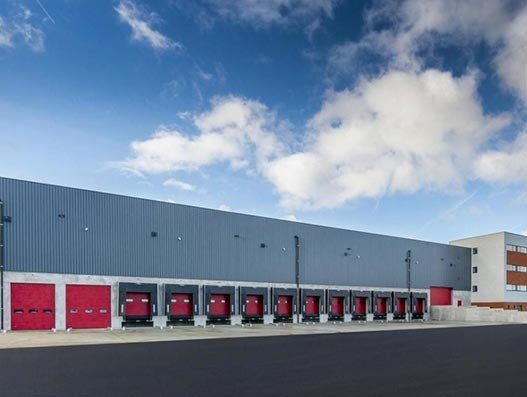
WHO picks Liege Airport as European hub to move critical medical supplies
Liege Airport has been selected by WHO and WFP to play a crucial role in moving critical supplies to tackle the Covid-19.

Liege Airport has been selected by the World Health Organisation (WHO), the UN's health agency, and World Food Programme (WFP) to play a crucial role in moving critical supplies across the world to tackle the Covid-19 pandemic. Among the eight global hubs that have been identified by WHO, Belgium’s Liege Airport with its ground handling partner Worldwide Flight Services is equipped to handle chartered and relief flights starting April 11 until May 31, 2020, according to reliable sources in the know.
In July 2018 during the Farnborough International Airshow, Liege Airport and Volga-Dnepr Group had inked a 10-year lease agreement, which would boost air cargo volumes for AirBridgeCargo to/from the airport, thus making Liege Airport as the European hub for its operations. Under the agreement, AirBridgeCargo (ABC) had leased 25,000 sq. m. warehouse premises for seamless cargo operations in the airport. The investment amounting to 25 million euros, which included 2,000 sq. m. of office space for ABC, was to be executed in two phases. The first 12,500 sq.m of warehousing premises became operational in November 2019. The construction for the second phase, which was supposed to commence in April 2020 has now been put on hold until June 2020. The operational warehouse now will be used to stock and further move critical supplies needed in response to Covid-19 to different parts of the world.

Cargo infrastructure at Liege Airport
“AirBridgeCargo has postponed the acceptance of the lease until June 1st 2020, as they are focusing all their attention now on the charter programs to bring the medical supplies where they are needed most,” informed the source.
During a press briefing WHO director general Tedros Adhanom Ghebreyesus informed that the new WHO supply chain taskforce has been tasked to co-ordinate and scale up the procurement and distribution of PPE kits, lab diagnostics and oxygen to the countries that are currently fighting the Covid-19 battle. The other hubs for this initiative are located in China, Ethiopia, Ghana, Malaysia, Panama, South Africa and the United Arab Emirates.
“We estimate that the supply chain may need to cover more than 30 percent of the world’s needs in the acute phase of the pandemic. Every month, we will need to ship at least 100 million medical masks and gloves, upto 25 million N95 respirators, gowns and face shields, upto 2.5 million diagnostic tests and large quantities of oxygen concentrators and other equipment for clinical care,” the WHO chief forecasted.

Liege Airport welcomes SF Airlines which made its first landing this week
“To move the supplies across the world, the WFP will deploy 8 747 aircraft, 8 medium-sized cargo aircraft and several smaller passenger planes to move humanitarian workers, technical staff, trainers and other personnel. The WFP estimates that it will need $280 million simply to cover the cost of storing and moving supply. The costs of procuring supplies will be much greater,” he added.
Liege Airport, which is also the European logistics hub for Alibaba-backed Cainiao Smart Logistics Network, has played a vital role in ensuring timely deliveries of critical medical supplies both to and from China into Europe. Alibaba's logistics arm Cainiao opened a warehouse in Liege to help businesses in Europe transport goods to China. Chartered airfreight now flies five times a week from Hangzhou to Liege. This week, China’s cargo airline SF Express made its first landing in Liege.

